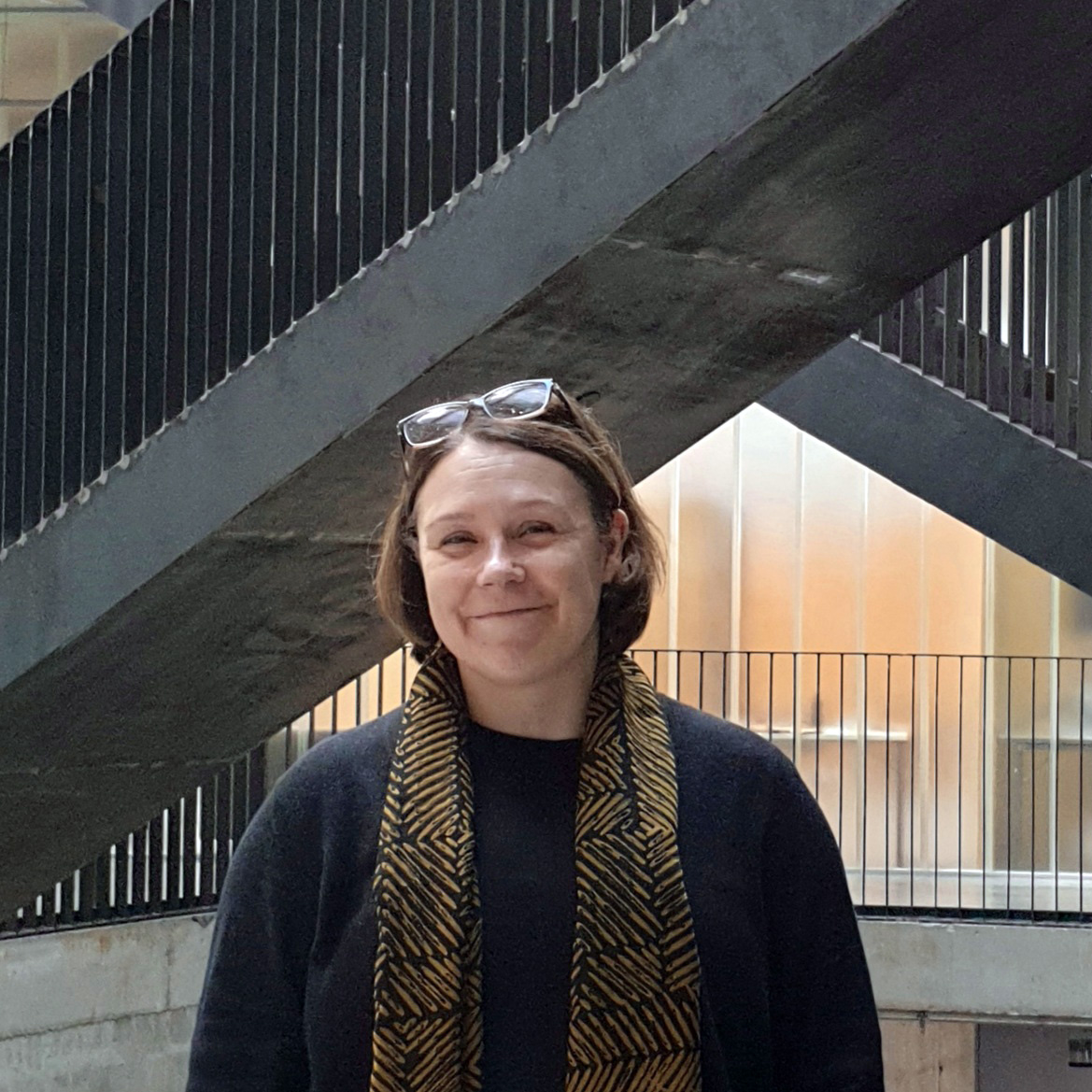Project manager helps the university to compile new curricula
The “Working at Uniarts Helsinki” series presents employees who enable the growth of students and help them become highly skilled and broadminded artists and changemakers, thanks to their work in different roles within the university.

Who are you and what do you do at Uniarts Helsinki?
I’m Kirsti Rasehorn, project manager for curriculum work, which means I coordinate the joint curriculum reform project OPS 2024. It involves Uniarts Helsinki’s three academies and the Open Campus and aims to reform the curricula for bachelor’s and master’s education.
My professional background is pretty versatile: I’m an expert in educational development and management, teaching and pedagogy, as well as music education and music education research. I have a long history in full-time jobs at universities and universities of applied sciences and part-time jobs in the context of music as a hobby, basic education in the arts, audience development and cultural organisations. I have a strong teacher identity, and I also create my own art by composing, arranging, playing and conducting music. My hobbies include photography, writing poems and participating in the activities of various associations.
What does it mean that the university’s curricula are renewed?
I’ll start my answer by explaining what a curriculum is: it’s the most important tool for the development of academic education, quality assurance and pedagogical management and provides a clear structure for studies. When we engage in curriculum work, it means that we are planning the teaching in advance for the whole duration of studies leading to a degree. The learner’s perspective is at the centre of the work. So a curriculum doesn’t establish strict regulations for how teaching is organised, and instead, it provides a framework for it.
Courses offered during each academic year are determined based on a curriculum, and concrete plans for teaching arrangements are compiled as a parallel process. Compiling a curriculum requires numerous discussions on the goals for education, the desired learning outcomes, structure of studies and study arrangements.
Universities renew their curricula regularly through an update process where both staff and students get to assess and envision what changes are needed in education and then carry out the necessary changes. Because this is the first time in Uniarts Helsinki’s history when the curriculum reform is carried out as a joint effort of all three academies and the Open Campus, the project is much bigger than ever before and requires a lot of joint planning, development and decision-making.
Above all, the reform is steered by our university’s strategy and the principles and guidelines compiled in connection with the curriculum, and this work is supported by extensive self-assessments carried out in connection with previous curricula, analysis work focusing on the essentials of a specific programme, joint theme-specific seminars and joint planning, online clinics and materials as well as reflections on the working life and operating environments, including stakeholders. Teaching that follows the new curricula will begin in the 2024 autumn term, and the curricula will be valid for the duration of the strategy period.
How would you describe your typical work day?
My work days typically consist of the same elements that are part of curriculum work: joint discussions, workshops and meetings, research- and experience-based assessments, analysis of the external operating environment, stakeholder and working life cooperation, future visions, and planning and communications. My days involve a lot of networking and I collaborate with people remotely, on site and through hybrid means. I work on both campuses and I try to divide my time equally between the different units of the university. I’m used to working in a train because I live in Kokkola with my family.
How did you end up working for us?
An acquaintance of mine who works at Uniarts Helsinki contacted me and promoted this vacant position for me. I found the job description really interesting and professionally tempting, so I decided to apply for it. I naturally already knew about Uniarts Helsinki as a community through the collaboration networks in my previous jobs. And I had worked as an hourly-paid orchestral conducting teacher within the Sibelius Academy’s Degree Programme in Music Education for about five years around 2000. So it was nice, inspiring and even kind of cosy starting work at Uniarts Helsinki in August 2021.
What is the best part of your job?
Developing the education of future arts professionals is a rewarding and inspiring challenge and a responsibility that entails multi-faceted tasks and visionary brainstorming. I truly enjoy how well people join forces and share their expertise within our university; the power and innovativeness of networks is quite apparent.
What is the best aspect of working at Uniarts Helsinki?
I think the best aspect is the richness of the diversity and expression of different fields of art and the strong presence of creativity. I notice how I’m learning constantly through progressive inquiry. And of course my wonderful colleagues and the student community are also essential.
Which Uniarts Helsinki performance or exhibition did you visit most recently?
I visited the BFA Exhibition of the Academy of Fine Arts in connection with Uniarts Helsinki’s opening of the academic year.
About Uniarts Helsinki
Uniarts Helsinki is an open meeting place for the arts – an ambitious university community for bold reformers and experts in tradition. We cultivate a unique environment that helps artists grow and strengthens the power of art as a driver of change. Uniarts Helsinki is among the leading performing arts universities in the world, and it is comprised of the Academy of Fine Arts, Sibelius Academy and Theatre Academy. We have about 2,000 students and about 700 full-time equivalent employees.
#workingatuniartshelsinki #weareuniartshelsinki